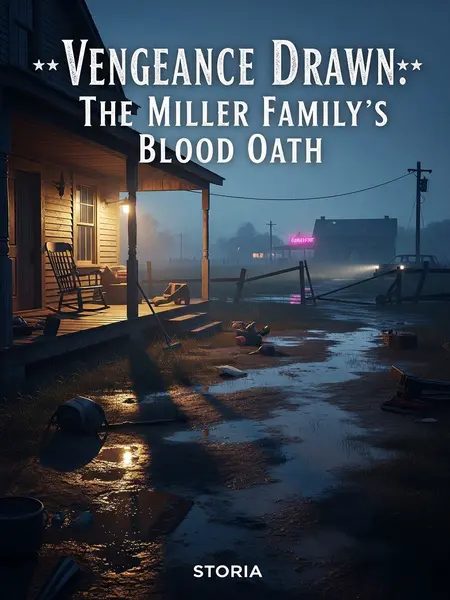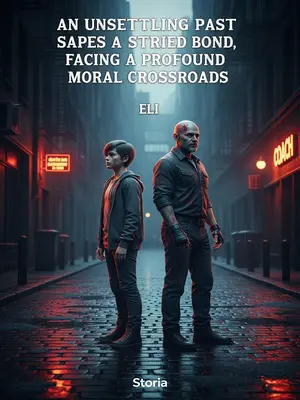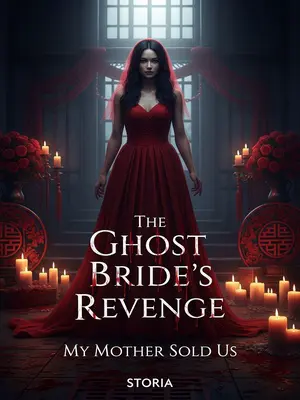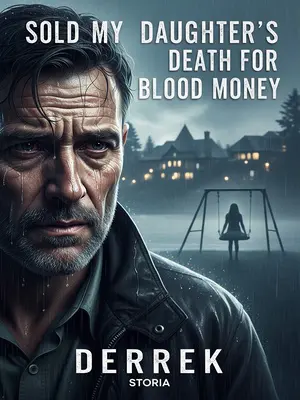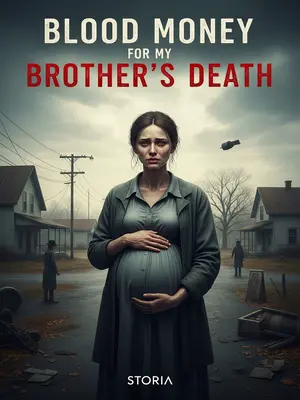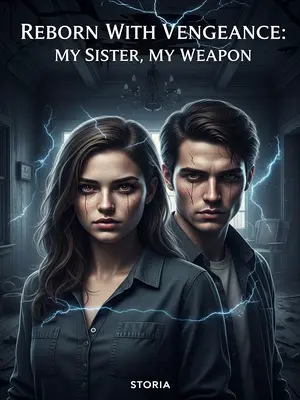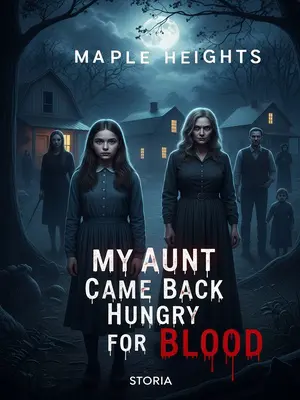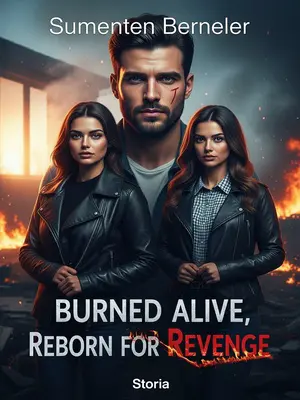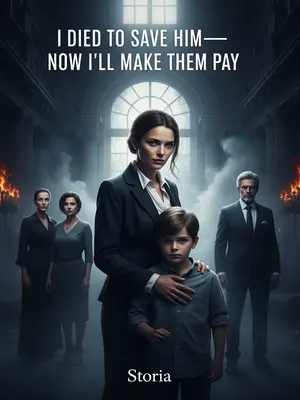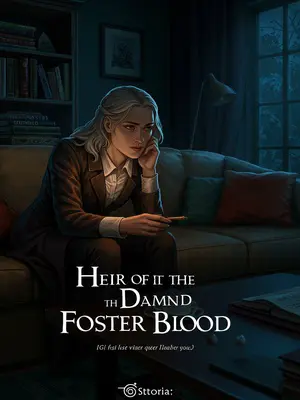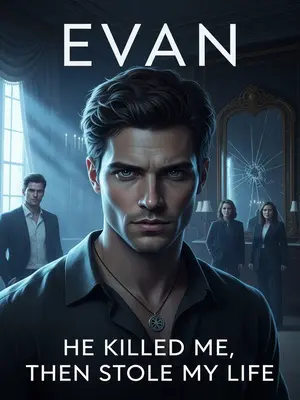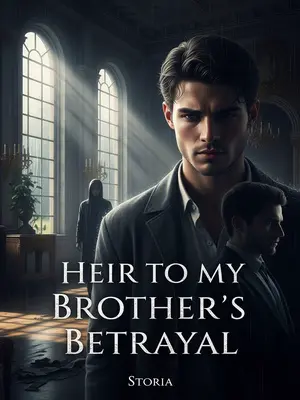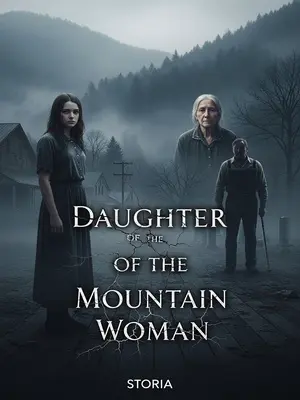Chapter 2: Sworn Siblings and Broken Roots
Tyler Dixon was hanging out here. When he saw Professor Carter paying with cash, he got some bad ideas and poured boiling noodles on him.
Tyler Dixon—a name every parent in town knew. I’d seen him before, slouched in a booth, always looking for a mark. No surprise he’d spot Carter and go for blood.
This kid had just been released from the sheriff’s office. He had no money for internet, so he lounged in his chair, telling anyone who’d listen how he beat up a middle-aged man.
That’s Tyler—no shame, no fear. He wore his rap sheet like a varsity jacket, buying respect from the other lost kids. He swaggered in, broke but cocky, spinning his crime into legend.
The other punks listened eagerly.
Kids hungry for something to believe in, even if it was just another loser’s story. They leaned in, desperate for a taste of danger or belonging—whatever came first.
They took no pride in school, but thought being violent was something to brag about.
Somewhere, the priorities flipped. It wasn’t cool to get good grades or help out at the food bank—it was cool to be tough, to make people flinch. It made my stomach turn, seeing how easy it is to lose a generation to nothing.
Next to him was a girl who boasted, "Me and Ty were there. Dude, I was cracking up—he totally freaked. That old guy tried to tell Ty he should get a job instead, so Ty just slapped him—right on the noodles—then dumped them on him. The dude started crying and stripping in the street."
She couldn’t have been more than sixteen, eyeliner smudged, black hoodie hanging off her shoulders. She wanted to sound hard, but there was a desperate edge to her laugh—like she was hoping to impress Tyler, or just survive another day.
I frowned.
Every word grated. She bragged about her ‘brother,’ but I knew Tyler Dixon. He was an only child—no siblings, not by blood.
Tyler Dixon is an only child. He can’t have a younger sister.
That wasn’t just rumor—it was fact. I’d seen the file, heard the stories. In a town like this, secrets don’t last long.
I know this for a fact—because while he was bragging in the café, I’d already broken into his house and cut the tendons in his father’s hands and feet, leaving him crippled.
The memory flickered—his father’s screams in that rundown house, blood on the linoleum. I felt nothing. Sometimes, justice is colder than the Indiana winter. I checked the records myself—no siblings. Only one rotten apple in that barrel.
His father lay in a pool of blood, wailing, while I double-checked the family records. No siblings.
There’s a saying in Indiana: if the crop’s bad, check the root. Tyler’s dad was the root—always covering for his boy, never owning up. That night, I made sure the lesson stuck, permanent as a scar.
If a child isn’t taught, it’s the father’s fault.
Old wisdom, still true here. You raise what you plant. I’d seen it too many times.
When Tyler was taken to the sheriff’s office, his dad never apologized—just cursed Carter for calling the cops, saying it could’ve been handled quietly. Carter pressed charges and got Tyler expelled.
No remorse, just resentment. For some folks, consequences are always someone else’s fault. I knew there’d be no changing Tyler unless you changed the family tree by force.
Professor Carter was the honored guest for all our factories. To bully him is to insult every Miller in town.
That wasn’t just an insult—it was a declaration of war. The old men would sit around at Thanksgiving and talk about when a man’s word meant something. I swore I’d bring that honor back, one way or another.
As I wondered about the supposed sister, Tyler put his arm around the girl’s waist, kissed her ear, and said, "So, you got your brother’s back or what?"
Nothing brotherly about it. He grinned as he whispered, showing off for the others. The girl shivered, but didn’t pull away, letting him claim her in front of the room.
She rolled her eyes, but leaned into him, proud to be the center of attention.
The truth hit me: not family—just a gang, patched together from broken pieces. In places like this, you find belonging wherever you can.
I understood: sworn siblings.
It’s the language of the lost—kids inventing their own families. They take care of each other, but it’s a care built on shared wounds and shaky loyalty.
At this age, it’s common to randomly claim relatives.
Every small town has its makeshift families—kids swearing blood oaths in the back seat of a friend’s rusty pickup, calling each other brother or sister when they barely know their real last names.
Someone asked, "Didn’t the old guy get burned when you poured the noodles?"
The question cut through the bravado, a flicker of concern—or maybe just curiosity. A few nudged closer.
Tyler said, "He was lucky. Stripped fast, so he wasn’t burned, just turned red."
He laughed, but the words rang hollow—a lie to dodge the weight of what he’d done.
The girl sighed, "My brother was lucky too. If the guy had gotten burned, he wouldn’t have gotten out so quick."
Her voice was almost wistful, like she knew how close things came to disaster.
My heart ached.
I felt it—sharp and cold, like the wind off Lake Michigan. They joked about violence, but I knew what pain looked like. I remembered Carter’s quiet dignity, the way he tried to protect them, even when he should’ve protected himself.
Because I know Professor Carter was burned.
Burned bad enough his shirt stuck to his skin. I’d seen the bandages, the way he tried to hide the pain behind a tight smile. The truth, as always, was uglier than their story.
At the hospital, the doctor said the burns were extensive. We urged him to get an injury assessment.
In Indiana, that means paperwork, court dates, maybe a lawsuit. The kind of thing that could ruin a boy’s future, even a rotten one. But Carter only thought of everyone else.
But Carter refused. He reassured us, saying it was nothing, that young people are impulsive.
I still hear him: “Don’t ruin a life for one mistake.” He was the kind who’d forgive anyone—except maybe himself.
Because he wouldn’t press charges—wanted to give the boy a chance—Tyler got out easy.
That’s the twist—mercy twisted into opportunity. Carter’s kindness was his strength, and maybe his weakness. Even now, I couldn’t decide if he was right or just naive.
But who could’ve guessed, the first thing Tyler did after getting out was hunt him down again.
The cycle spun on—hurt, forgive, hurt again. Some folks just don’t know when to quit. Anger rose, hot and clear.
Now, Tyler was bragging, "A few more days in juvie is nothing. If you haven’t been inside, you’re not really part of the scene."
He boasted like jail was a badge of honor. I’d heard it before—kids pretending lock-up was their Ivy League.
Every time Tyler talked about having "been inside," the kids around him looked at him with a kind of admiration.
To them, he was somebody. The town’s real legends had left long ago, but here was Tyler—king of the internet café, ruling over broken keyboards and dreams.
Someone else asked, "You hit an adult. Didn’t he fight back?"
A little nervous laughter, a dare. But the answer was always the same.
Tyler replied flatly, "No one’s ever dared fight back when I hit them."
He stared me down as he said it, daring anyone to contradict him. That was his whole game—win by fear, keep the rest in line by showing what happens if you step out of place.
The girl laughed.
Her giggle was sharp, hungry for belonging—even if it meant laughing at someone else’s pain.
She recounted, "It was so funny. That old guy was naked but still wore glasses. Ty slapped him, knocked his glasses crooked. He adjusted them, shaking, and said, ‘Young man, don’t do this, it’s not right.’"
"Then Ty slapped him again, knocked the glasses off. He held his face, whimpering. Guess what he said?"
Her story got louder, inviting everyone to laugh with her, desperate for approval.
A group of punks clamored, "What did he say?"
They leaned in, hungry for another punchline, another piece of someone else’s humiliation.
The girl covered her mouth, giggling, "He just kept crying out, ‘Oh my God!’"
The café erupted in laughter.
A bitter sound—forced and echoing off the stained ceiling. I felt something harden in my chest. This was their fun: someone’s pain, turned into a joke.
"Is there really someone who cries ‘Oh my God’ when hit?"
"I thought that only happened in movies! Hilarious."
They cackled, slapping the backs of chairs. I stared at the wall, holding my temper.
Listening to them, I touched the bloodstained hunting knife in my pocket.
The steel felt cold, grounding. I rolled my thumb over the handle, thinking of all the times I’d sworn never to be like these kids—and how easy it would be to cross that line tonight.
Is it funny?
Not in any language, not in any town. The laughter echoed, but all I heard was Carter’s scream, and the crunch of dignity breaking.
Not at all.
A returning professor, scalded with noodles by a seventeen-year-old, stripped and slapped in the street, crying out in pain.
I pictured Carter, glasses askew, blood down his chest, naked in the cold Indiana air. That image would haunt me forever.
I don’t find it funny. It feels like a knife twisting in my gut.
I pressed my hand to my stomach, fighting the urge to end it right there. I waited, counting my breaths, letting the anger settle.
